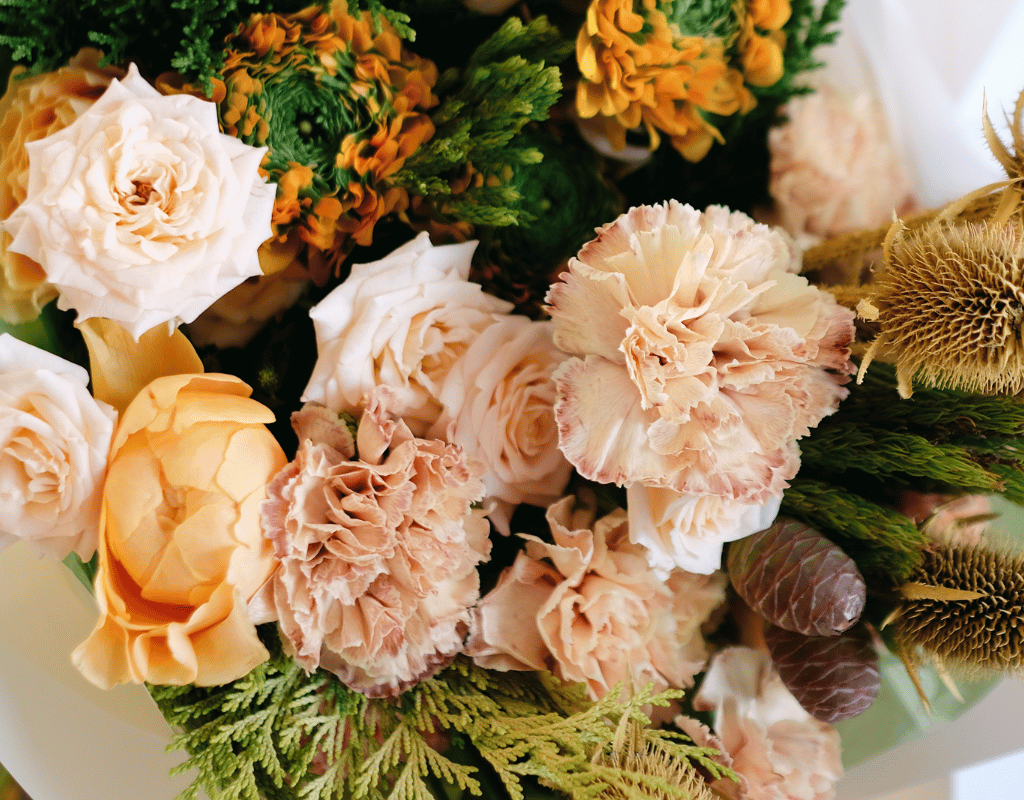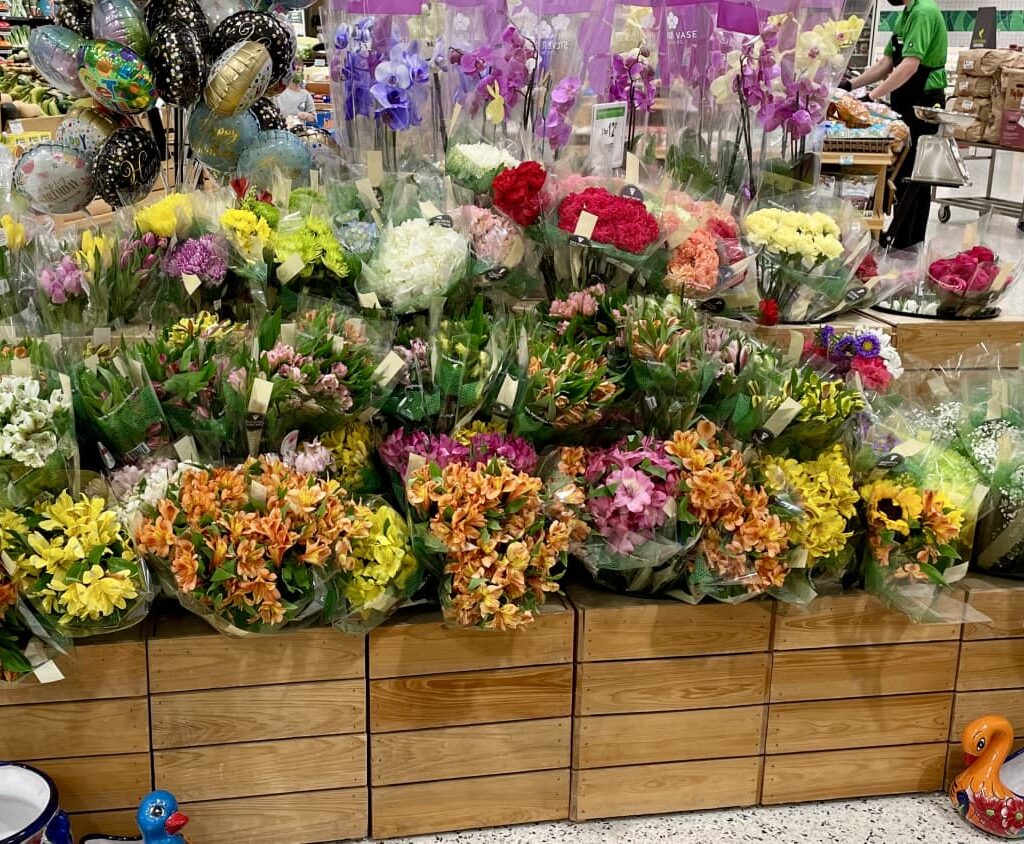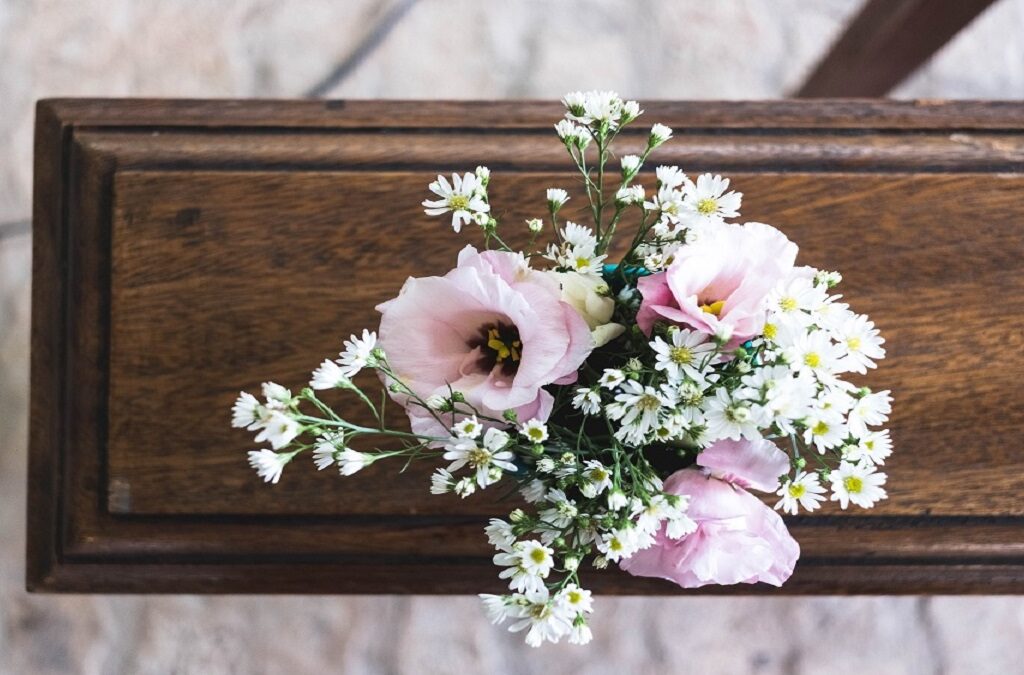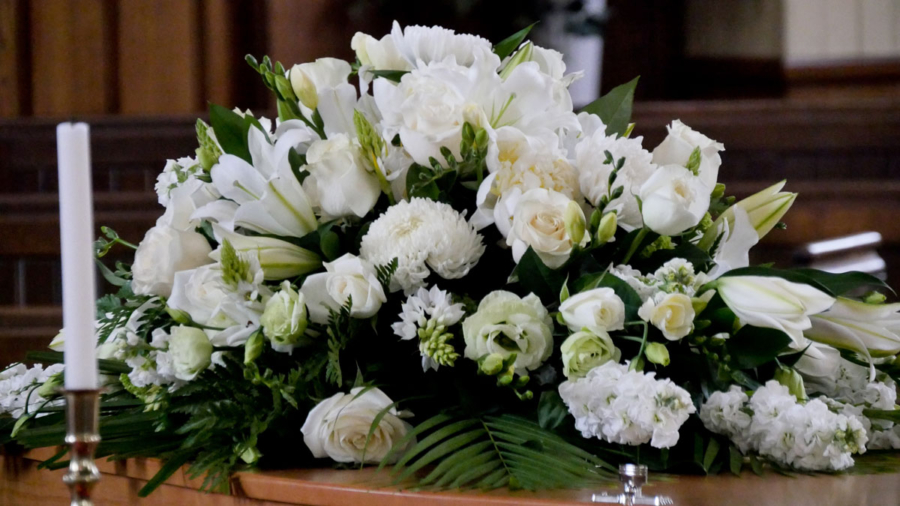Funeral flowers have long been a source of comfort and solace for grieving individuals and communities. Beyond their aesthetic appeal, these floral arrangements carry profound symbolism and meaning that help express emotions and honor the departed. Understanding the language of flowers and the cultural practices surrounding funeral flower traditions allows us to appreciate the deep-rooted significance these blooms hold during times of loss.
The Symbolism of Funeral Flowers
The language of flowers, or floriography, has been used for centuries to convey sentiments and emotions. Each flower has its symbolism, with certain blooms becoming synonymous with grief and mourning. Funeral flowers serve as a tangible representation of love, respect, and remembrance. By carefully selecting the appropriate flowers, mourners can express their feelings and pay tribute to the deceased.
Funeral flowers have a rich history and cultural significance. In ancient times, flowers were used to honor the dead and provide comfort to grieving families. The tradition of placing flowers at funerals can be traced back to the ancient Greeks and Romans, who believed that flowers had the power to ease the transition of the soul into the afterlife. Click here to get about the language of sympathy expressed through funeral flowers.
Understanding the language of flowers is essential when choosing the right blooms for a funeral. This complex system of symbolism differs across cultures and time periods. For example, white lilies are a common funeral flower in many Western societies, representing innocence, purity, and the resurrection of the soul. On the other hand, chrysanthemums, especially popular in Asian cultures, symbolize honor, loyalty, and the afterlife.
It is fascinating to explore the meanings behind different funeral flowers. Roses, known for their beauty and fragrance, convey love and respect. Their delicate petals and vibrant colors bring a sense of warmth and affection to any memorial service. Chrysanthemums, as mentioned earlier, are often associated with memorial services. These resilient flowers are believed to bring comfort and solace to grieving families.

Orchids, with their exotic beauty and graceful appearance, are favored for their symbolism of eternal love and beauty. These delicate blooms represent the everlasting bond between the deceased and their loved ones. Their presence at a funeral can bring a sense of peace and serenity to those in mourning.
When selecting funeral flowers, it is important to consider the personality and preferences of the deceased. Some may have had a favorite flower or color that holds special meaning to them. By incorporating these personal touches, mourners can create floral tributes that truly reflect the life and spirit of their loved one.
Regardless of the flower choice, the mere presence of these blossoms provides solace and comfort to those mourning the loss of a loved one. Funeral flowers not only honor the deceased but also serve as a reminder of the beauty and fragility of life. They offer a visual representation of the love and support surrounding the grieving family, providing a sense of hope and healing during a difficult time.
The Role of Flowers in the Grieving Process
Flowers play a crucial role in the grieving process by providing emotional support and acting as a form of expression. They offer a physical representation of condolences and act as a visual reminder of the support that surrounds mourners during their time of loss.
When a loved one passes away, it can be difficult to find the right words to express our sympathy and support. This is where flowers step in, serving as a powerful means of emotional expression. Grief can be overwhelming and confusing, with emotions running deep. Funeral flowers provide mourners with a means to express their emotions when words may fail them. The vibrant colors, delicate petals, and soothing fragrances invoke a sense of comfort and provide a gentle reminder that even amidst sorrow, there is beauty to be found.
Flowers as a Form of Emotional Expression
Grief is a complex and deeply personal experience. Each individual mourns in their own unique way, and funeral flowers offer a way to honor and remember the deceased while also expressing one’s own emotions. Whether it’s a bouquet of roses symbolizing love and admiration or a serene arrangement of lilies representing purity and innocence, the choice of flowers can convey a heartfelt message to the grieving family.
Moreover, the act of selecting and arranging funeral flowers can be a cathartic process for those mourning the loss of a loved one. It allows them to channel their emotions into a tangible form, creating a personalized tribute that reflects the relationship they shared with the deceased. This act of creative expression can bring a sense of closure and healing, providing solace during a time of immense sadness.
The Therapeutic Effects of Flowers
It is no secret that flowers have a profound impact on our emotional well-being. Numerous studies have shown that flowers have a positive effect on mental health, promoting feelings of happiness, relaxation, and overall well-being. In the context of grief, the therapeutic effects of flowers become even more significant.
The presence of flowers in a grieving environment can help reduce stress, anxiety, and depression. The natural beauty and vibrant colors of flowers evoke feelings of calmness and tranquility, providing solace in times of sorrow. The act of caring for and tending to flowers can also serve as a therapeutic activity, offering a sense of purpose and distraction from the pain of loss.
Furthermore, flowers have been found to have a direct impact on our physiological responses. The scent of certain flowers, such as lavender or chamomile, has been shown to lower heart rate and blood pressure, promoting a sense of relaxation and emotional well-being. This gentle sensory experience can provide much-needed comfort to those navigating the difficult journey of grief.
In conclusion, the role of flowers in the grieving process extends far beyond their aesthetic appeal. They serve as a powerful means of emotional expression, allowing mourners to convey their feelings when words may fail them. Additionally, flowers offer therapeutic benefits, promoting emotional well-being and providing solace in times of sorrow. Whether as a visual reminder of support or as a source of comfort, funeral flowers play a vital role in helping individuals navigate the complex emotions of grief.
Cultural Practices Involving Funeral Flowers
The customs and traditions surrounding funeral flowers vary across different cultures. Exploring these practices allows us to appreciate the diversity of global mourning rituals and understand the profound importance of flowers in different societies.
Funeral flowers play a significant role in honoring the deceased and providing comfort to the grieving. They serve as a visual representation of love, respect, and remembrance. Throughout history, various cultures have developed unique traditions and beliefs surrounding the use of flowers in funerals.
Funeral Flower Traditions Around the World
Funeral flower traditions vary greatly around the world. In some cultures, such as Mexico’s Day of the Dead celebrations, vibrant marigolds are used to honor and guide the spirits of the departed. The bright orange and yellow hues of marigolds are believed to attract the souls of loved ones, creating a path for them to return to the world of the living.
In other cultures, such as the Japanese tradition of Obon, families offer flowers at ancestral gravesites to remember and honor their loved ones. This practice, known as “ohakamairi,” involves placing flowers, typically chrysanthemums, at the gravesite as a gesture of respect and remembrance. Chrysanthemums hold a special significance in Japanese culture, symbolizing longevity and loyalty.

Similarly, in many Western cultures, funeral wreaths and bouquets are commonly used to express condolences and pay tribute to the deceased. These arrangements often incorporate a variety of flowers, each carrying its own symbolic meaning. For example, lilies are often associated with purity and innocence, while roses symbolize love and beauty.
The Evolution of Funeral Flower Customs
The customs surrounding funeral flowers have evolved over time. In the past, certain flowers were chosen for practical reasons, such as their ability to mask the unpleasant odor of decomposition. However, over the years, the focus has shifted towards symbolic meanings and personalization.
Nowadays, mourners carefully select flowers that encapsulate their feelings and reflect the life and personality of the deceased. For instance, if the departed had a passion for gardening, arrangements may include their favorite flowers or plants. If they were known for their vibrant personality, colorful and bold blooms might be chosen to celebrate their spirit.
Additionally, the choice of flowers can also vary depending on cultural and religious beliefs. For example, in Hindu funerals, marigolds are often used as they are considered auspicious and are believed to guide the soul to the afterlife. In contrast, white flowers, such as lilies, are commonly used in Christian funerals as a symbol of purity and resurrection.
Furthermore, the use of funeral flowers has expanded beyond traditional arrangements. Some families opt for personalized tributes, such as floral sculptures or themed displays that represent the hobbies, interests, or professions of the deceased. These unique floral creations serve as a beautiful and meaningful way to honor their memory.
As we continue to explore funeral flower customs around the world, we discover the intricate tapestry of beliefs, traditions, and emotions that are woven into these practices. The universal language of flowers allows us to express our deepest emotions and pay tribute to those who have passed away, transcending cultural boundaries and reminding us of the power of love and remembrance.

Choosing the Right Funeral Flowers
Choosing the right funeral flowers can be a daunting task, as it requires consideration of various factors. However, with careful thought and attention, mourners can create floral tributes that honor their loved ones and offer comfort to those grieving.
Factors to Consider When Selecting Funeral Flowers
When selecting funeral flowers, it is important to consider factors such as personal preference, cultural traditions, and the relationship with the deceased. Mourners may choose to incorporate the deceased’s favorite flowers or colors, creating a personal connection to the arrangement. It is also essential to consider the cultural context and choose flowers that hold appropriate symbolism within that culture.
Conveying Your Message Through Flowers
Funeral flowers provide an opportunity to convey messages and emotions that may be difficult to express in words. They can serve as a way to communicate love, support, and condolences. By carefully selecting the right flowers and arranging them with thoughtfulness, mourners can ensure their message is understood and received during this challenging time.
The Future of Funeral Flowers
As society evolves and becomes more environmentally conscious, the future of funeral flowers is set to adapt accordingly. Sustainable and eco-friendly alternatives are gaining popularity as people seek ways to pay tribute to their loved ones while minimizing environmental impact.
Sustainable and Eco-friendly Alternatives
Biodegradable floral arrangements, such as woven baskets made from natural fibers and living plants in soil-based containers, are becoming more prevalent. These alternatives provide a sustainable option that honors the deceased while being gentle on the planet. Additionally, mourners are opting for floral arrangements that can be repurposed, such as dried flower wreaths or potted plants that continue to grow and serve as a lasting memorial.
The Rise of Personalized Funeral Flower Arrangements
As funeral ceremonies become more personalized, funeral flower arrangements are following suit. Mourners are seeking unique and meaningful floral tributes that reflect the individuality of the departed. Customized designs, incorporating personal items or hobbies, are gaining popularity. These creative arrangements not only celebrate the life lived but also provide a source of comfort and support to those left behind.
In conclusion, funeral flowers offer solace and support to grieving individuals and communities. The symbolism, emotional expression, and therapeutic effects they provide aid in the grieving process. Cultural practices involving funeral flowers reflect the diverse ways in which different societies honor and remember their loved ones. Choosing the right funeral flowers involves considering personal preferences, cultural traditions, and the relationship with the deceased. As we look towards the future, sustainable alternatives and personalized arrangements are shaping the way funeral flowers are presented and experienced. In the face of loss, the comfort found in petals has an everlasting impact on those who mourn.

